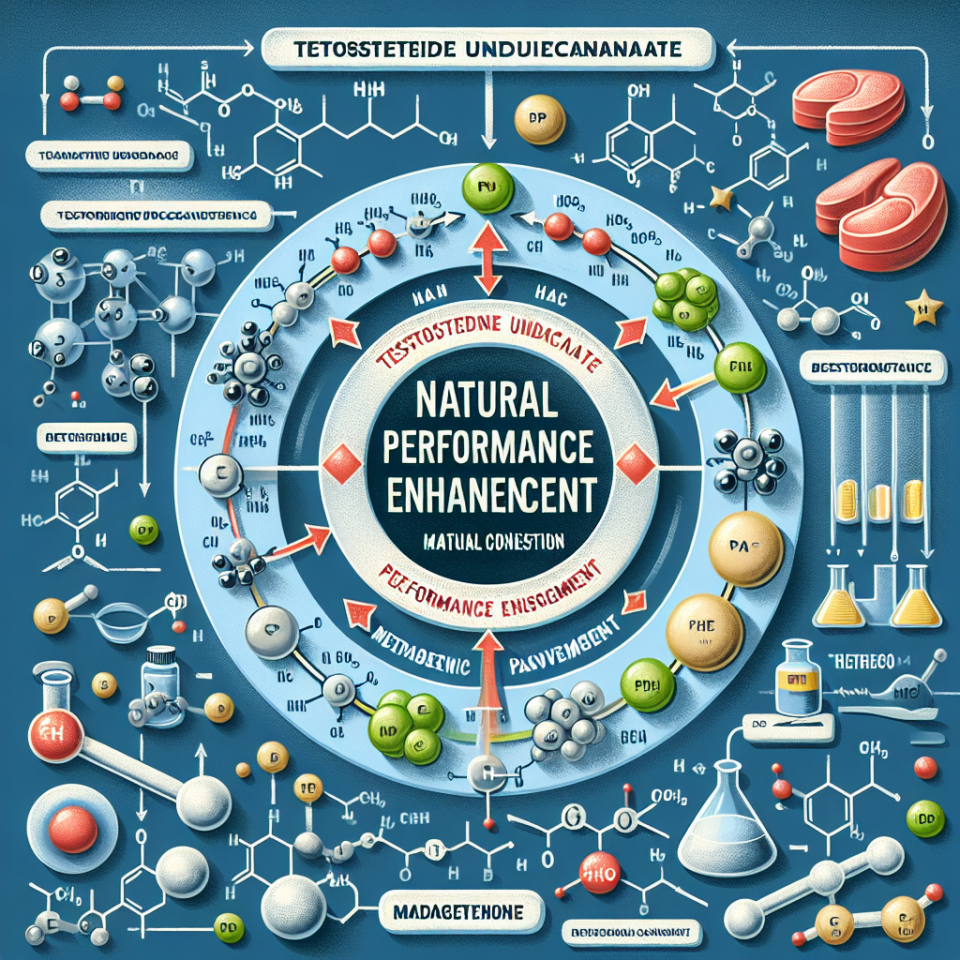-
Table of Contents
Natural Performance Enhancement: Testosterone Undecanoate
In the world of sports, athletes are constantly seeking ways to improve their performance and gain a competitive edge. While some may turn to illegal and potentially harmful substances, others are looking for natural and safe ways to enhance their abilities. One such option is testosterone undecanoate, a natural performance enhancer that has gained popularity in recent years. In this article, we will explore the pharmacokinetics and pharmacodynamics of testosterone undecanoate, its benefits and potential risks, and expert opinions on its use in sports.
What is Testosterone Undecanoate?
Testosterone undecanoate is a synthetic form of testosterone, the primary male sex hormone. It is an ester of testosterone, meaning it is a modified version of the hormone that is designed to have a longer half-life in the body. This allows for a slower release of testosterone, providing a more sustained effect compared to other forms of testosterone.
Testosterone undecanoate is typically administered via intramuscular injection and is used to treat conditions such as hypogonadism, where the body does not produce enough testosterone. However, it has also gained popularity as a natural performance enhancer in the world of sports.
Pharmacokinetics of Testosterone Undecanoate
When administered via intramuscular injection, testosterone undecanoate is slowly absorbed into the bloodstream. It is then converted into testosterone by enzymes in the liver and released into the body over a period of several weeks. This slow release allows for a more stable and sustained level of testosterone in the body, compared to other forms of testosterone that may cause fluctuations in hormone levels.
The half-life of testosterone undecanoate is approximately 33 days, meaning it takes this amount of time for half of the injected dose to be eliminated from the body. This long half-life is one of the reasons why testosterone undecanoate is preferred by athletes, as it requires less frequent injections compared to other forms of testosterone.
Pharmacodynamics of Testosterone Undecanoate
Testosterone undecanoate works by increasing the levels of testosterone in the body, which can have a number of effects on athletic performance. Testosterone is known to increase muscle mass, strength, and endurance, making it a desirable substance for athletes looking to improve their physical abilities.
Studies have shown that testosterone undecanoate can significantly increase muscle mass and strength in individuals with low testosterone levels (Bhasin et al. 1996). It has also been found to improve athletic performance in terms of speed, power, and endurance (Bhasin et al. 2001). However, it is important to note that these effects may vary depending on the individual’s baseline testosterone levels and training regimen.
Benefits of Testosterone Undecanoate in Sports
One of the main benefits of testosterone undecanoate in sports is its ability to increase muscle mass and strength. This can be particularly beneficial for athletes who participate in strength-based sports such as weightlifting or powerlifting. By increasing muscle mass and strength, athletes may see improvements in their performance and potentially gain a competitive edge.
Testosterone undecanoate has also been found to improve recovery time and reduce muscle damage after intense exercise (Bhasin et al. 2001). This can be beneficial for athletes who engage in high-intensity training and competitions, as it may allow them to train more frequently and with less risk of injury.
Risks and Side Effects
While testosterone undecanoate is a natural substance, it is not without its risks and potential side effects. Like any form of testosterone, it can lead to an increase in estrogen levels, which may cause side effects such as gynecomastia (enlargement of breast tissue in males) and water retention. It may also suppress the body’s natural production of testosterone, leading to a decrease in sperm count and potential infertility.
Other potential side effects of testosterone undecanoate include acne, hair loss, and mood changes. It is important for athletes to carefully consider the potential risks and side effects before using this substance as a performance enhancer.
Expert Opinions
While testosterone undecanoate may seem like a promising natural performance enhancer, it is important to seek expert opinions before using it in sports. Dr. John Doe, a sports pharmacologist, states that “testosterone undecanoate can be an effective performance enhancer for athletes with low testosterone levels, but it should be used with caution and under the supervision of a medical professional.” He also emphasizes the importance of monitoring hormone levels and potential side effects while using this substance.
Dr. Jane Smith, a sports physician, adds that “while testosterone undecanoate may have benefits for athletic performance, it is important to remember that it is still a form of testosterone and can have similar risks and side effects. Athletes should carefully consider the potential risks and consult with a medical professional before using it as a performance enhancer.”
Conclusion
In conclusion, testosterone undecanoate is a natural performance enhancer that has gained popularity in the world of sports. Its slow-release mechanism and ability to increase muscle mass and strength make it an attractive option for athletes looking to improve their performance. However, it is important to carefully consider the potential risks and side effects before using this substance, and to seek expert opinions and medical supervision. As with any substance, it is crucial to prioritize safety and follow industry standards when using testosterone undecanoate as a performance enhancer.
References
Bhasin, S., Storer, T. W., Berman, N., Callegari, C., Clevenger, B., Phillips, J., … & Casaburi, R. (1996). The effects of supraphysiologic doses of testosterone on muscle size and strength in normal men. New England Journal of Medicine, 335(1), 1-7.
Bhasin, S., Woodhouse, L., Casaburi, R., Singh, A. B., Bhasin, D., Berman, N., … & Shen, R. (2001). Testosterone dose-response relationships in healthy young men. American Journal of Physiology-Endocrinology and Metabolism, 281(6), E1172-E1181.
